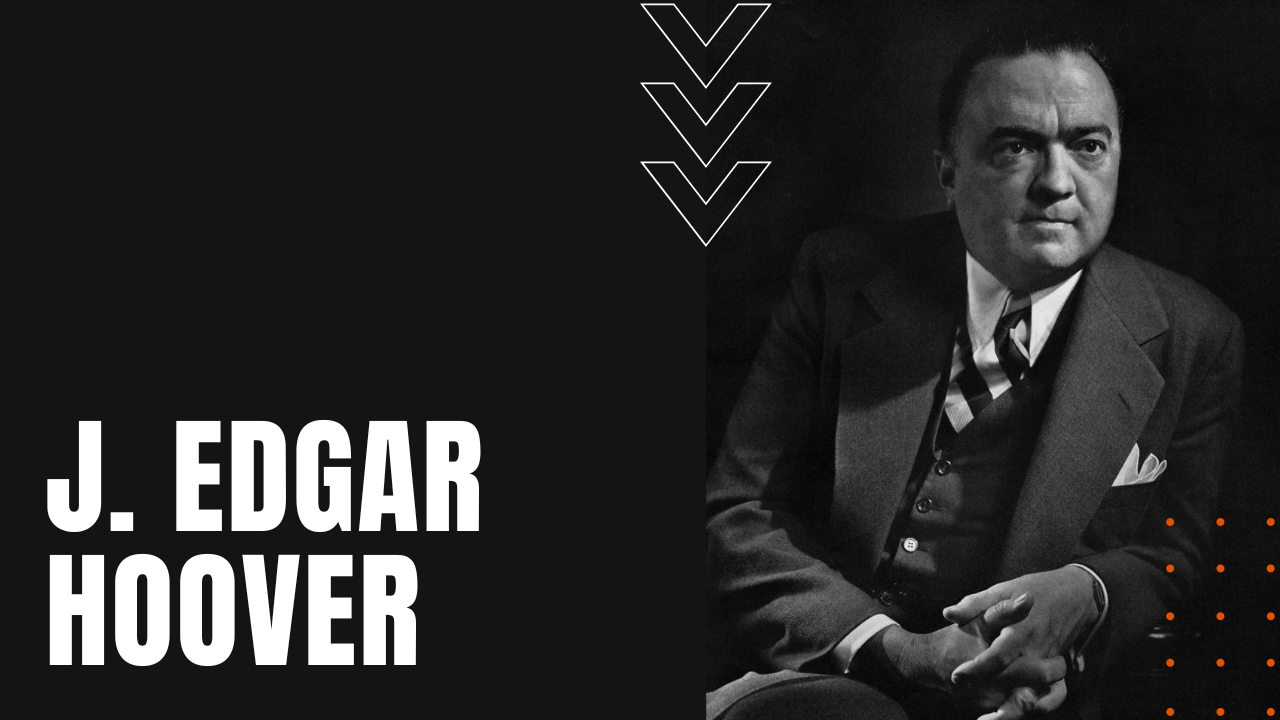J. Edgar Hoover

Born in 1895 in Washington, D.C., after graduating from law school and passing the bar exam, J. Edgar Hoover became special assistant to Attorney General A. Mitchell Palmer in 1919, where he began collecting information on tens of thousands of political dissidents, using many illegal techniques that would become his hallmark practice over his 48 years as Director of the FBI.
Palmer Raids
During the First Communist Red Scare, on January 2nd, 1920, Hoover’s division of the Bureau of Investigation—later renamed the Federal Bureau of Investigation in 1935—Hoover conducted concurrent raids on several major U.S. cities, arresting thousands of suspected anarchists, Communists and left-leaning radicals in what became known as the Palmer Raids.
Racial Bias and Organized Crime
Following Hoover’s appointment as Director in 1924, Hoover set out to reform the tarnished image of the Bureau by weeding out corrupt G-men, as they became known, filling his organization with mainly white, college-educated males, who became public symbols of law, order and morality, bringing down such Prohibition-era gangsters as Al Capone, Ma Barker, John Dillinger, Baby Face Nelson and George “Machine Gun” Kelly.
Now the public face of America’s war on crime, during World War Two, President Franklin D. Roosevelt gave Hoover the nod to investigate suspected fascists and communists living in the United States, which soon expanded to celebrities Hoover thought subversive, including Marilyn Monroe, Lucille Ball, Charlie Chaplin, Helen Keller and Eleanor Roosevelt.
Cold War Fight Against Communism
During the Cold War years, Hoover continued his lifelong war on Communism, aggressively prosecuting accused Soviet spies such as Alger Hiss and Julius and Ethel Rosenberg. During the 1960s, Hoover led investigations into the leaders of the civil rights movement, while compiling dossiers on President John F. Kennedy’s many extramarital affairs and suspected ties to the mafia.
After JFK’s assassination, President Lyndon Baines Johnson ordered Hoover’s FBI to crush the Ku Klux Klan in the segregated South, which ultimately weakened the KKK’s public displays of hate. During the Nixon years, Hoover’s leadership came under threat when his enemies within the White House attempted to replace him with FBI subordinate Bill Sullivan.
After Nixon backed down, Hoover fired Sullivan without cause, replacing him with FBI veteran Mark Felt, who was later exposed as “Deep Throat” during the Watergate Scandal. Shortly after Sullivan’s departure, Hoover passed away in his sleep on May 2nd, 1972, making J. Edgar Hoover one of the most controversial figures in the history of American law enforcement.
